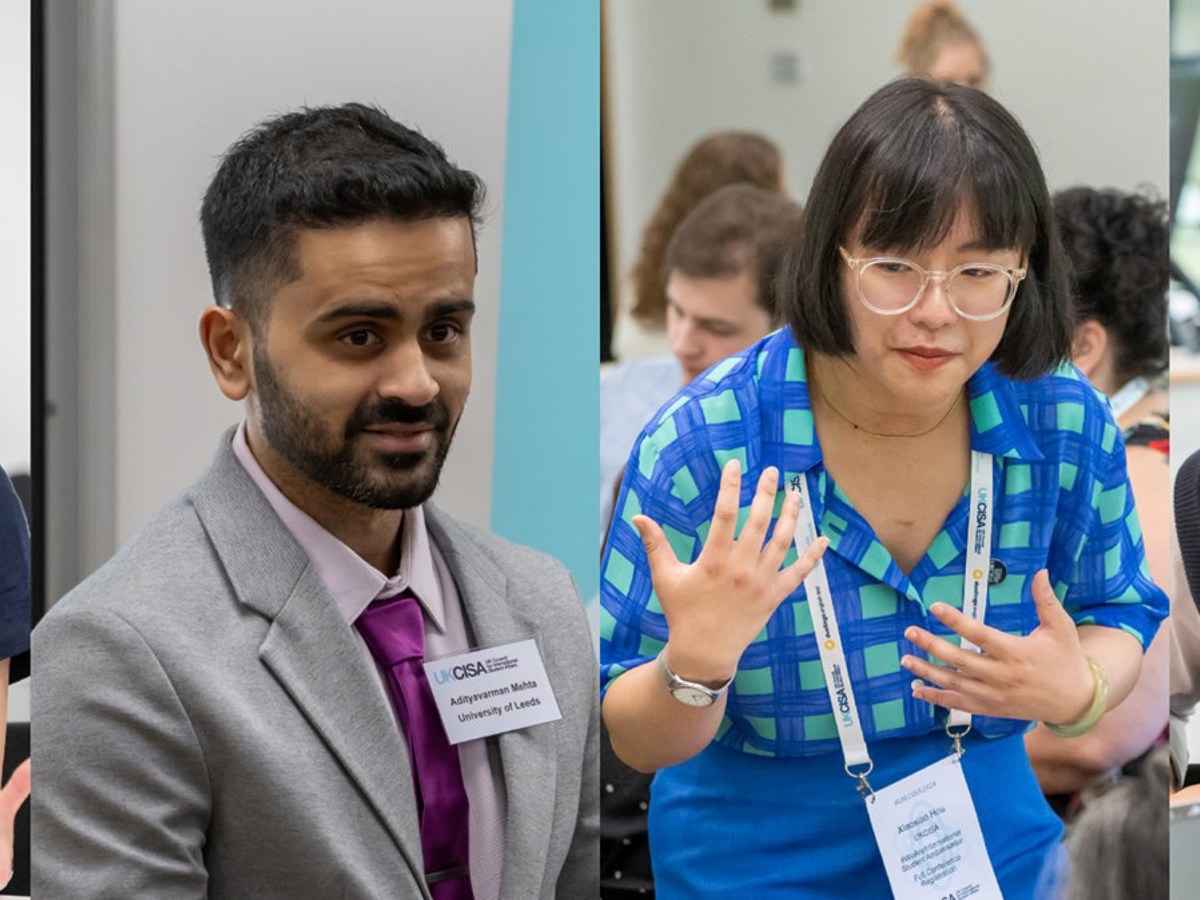
Commemorating International Students’ Day 2024: inspirational stories from inspirational individuals
November 19, 2024
Dating back more than 80 years, International Students’ Day has a rather sad and tragic past.
Today, the occasion is more widely commemorated as a moment to reflect on the experience of international students, and to express support and solidarity for the community. As the UK’s national advisory body supporting international students and those who work with them, we here at UKCISA have been proud to work with, advocate for, and support international students for almost 60 years since our inception in 1968.
As part of our work with international students, we are proud to lead the #WeAreInternational Student Ambassador programme, an education policy and leadership development scheme that has been running for five years, with over 40 ambassadors from around the world getting involved in this time. To commemorate this year’s International Students’ Day, we have collected stories and experiences from our ambassadors that serve as inspiring reminders as to the hard work, commitment and enrichment international students bring to the UK and their local communities.
Xiaoxiao Hou is currently a student in dementia research at the University of Liverpool (PhD), and is originally from China:
“During my time in Liverpool, I have been involved with Playlist for Life and Alzheimer’s Society, organisations who specialise in providing tailored music experiences for those people living with dementia or developing issues with memory. From initially being involved in discussing a range of mutual research with Merseyside Dementia Friendly Radio, I have become a co-director of the team, looking to provide insight from the perspective of a professional music researcher, as well as championing the need to understand the different impact that dementia can have on isolated communities in the region.
My research has been published in NHS magazine and public magazines, and I have been invited to speak at many notable events, as well as directly advise key organisations in my field. I also used my knowledge and skills to volunteer at NHS care homes.
I think the value that I have brought to my university and the UK as an international student is evident through my interactions with the local communities and organisations. I have had opportunities to work with demographics that the university may not have everyday access to, exchange methods of working, explore mutual learning and development among my student colleagues, local artists, scientists, health professionals, and to see our younger generations living in a more inclusive and diverse environment.”
Pedram Bani Asadi is currently studying a leadership course at the University of Law (PGC), and is originally from Iran:
“I was very shy when I first came to the UK, but I found myself through events and the communities that I was a part of at university.
I was elected twice to be my Students' Union President, and was also elected to the committees of eight different societies whilst studying at an undergraduate level, eventually becoming president of four of them. As SU president, I helped to advocate for and was successful in getting safe sex products and period products in all bathrooms on all 19 campuses of my university. Additionally, I successfully advocated for international students to be able to get sabbatical officer visas if elected for a sabbatical officer role, helping to equal the playing field.
As a society president, we held more than 20 events for students to get to know each other, from learning about French culture as part of the French society, to providing students with legal pro bono job experiences and debating competitions in the multiple law societies that I led. This helped them prepare for the job market and be able to develop their skills.
Alongside my studies, I also wrote a national NUS policy proposal about international students which was presented at the NUS conference and was subsequently passed through a vote with sabbatical officers around the UK and has now become NUS policy.”
Anastasiia Guseva is studying International Business at the University of Greenwich, and is originally from Russia:
“I have been fortunate to see my commitment to social inclusion and civic engagement met with appreciation and encouragement in the UK. Over the past two years, I have grown academically and found opportunities aligned with both my career and personal interests. At college, I was first appointed as an International Student Representative and later elected as a Student Ambassador for UKCISA, representing further education students. In these roles, I hope I have helped to reduce some of the barriers associated with the Further Education (FE) sector and have voiced its concerns at the national policy making level. Now at university, I remain optimistic that changes addressing international students’ academic support, employability, and integration will emerge in FE.
Beyond academics, I have actively engaged with the local community. For 1.5 years, I volunteered with the City of London, supporting cultural initiatives, and more recently joined Healthwatch England to address healthcare inequalities. As a Volunteer Coordinator at YHA England & Wales, I work alongside a dedicated team to bring the benefits of adventure and travel to young people from lower-income backgrounds.
It has always been important for me to see the tangible impact of my efforts, and while I am still in the early stages of my career, it is rewarding to see the difference I can make locally.”
Adityavarman Mehta is currently a researcher in the School of Politics and International Studies at the University of Leeds (PhD), and is originally from India:
“My PhD research examines the role of global health diplomacy in achieving peacebuilding in post-conflict northern Uganda. While there is significant literature that assesses the impact of conflict on health outcomes, I wanted to study if global health initiatives implemented during conflict had the potential to broker a ceasefire or facilitate peacebuilding. The inspiration for this project came, in part, from the six-month ceasefire in Sudan brokered by The Carter Center in 1994 to implement a Guineaworm eradication program. Similarly, through my research, I hope to make an original contribution on the role that global health diplomacy might have played in peacebuilding in the Ugandan context between 1986 and 2006.
One of the highlights of my time in the UK has been the opportunity to work alongside friends and colleagues from countries such as the UK, Nigeria, Saudi Arabia, France, Bangladesh, and China among others. The daily interaction with such a diverse range of PhD candidates has strengthened my knowledge of international relations. Additionally, through my time in the UK, I have been involved with the St. Chad's Broomfield Cricket Club, which has a 140-year history. Playing with the intention to win games of cricket with teammates from a variety of different cultures is deeply rewarding.”
If you are a current or former international student who has a story to tell, we encourage to share your experiences on social media and both tag us – you can find us on Facebook, X/Twitter, Instagram, and LinkedIn – and use the #WeAreInternational to join the conversation with other international students, as well as the institutions and organisations that work with and to support them.


